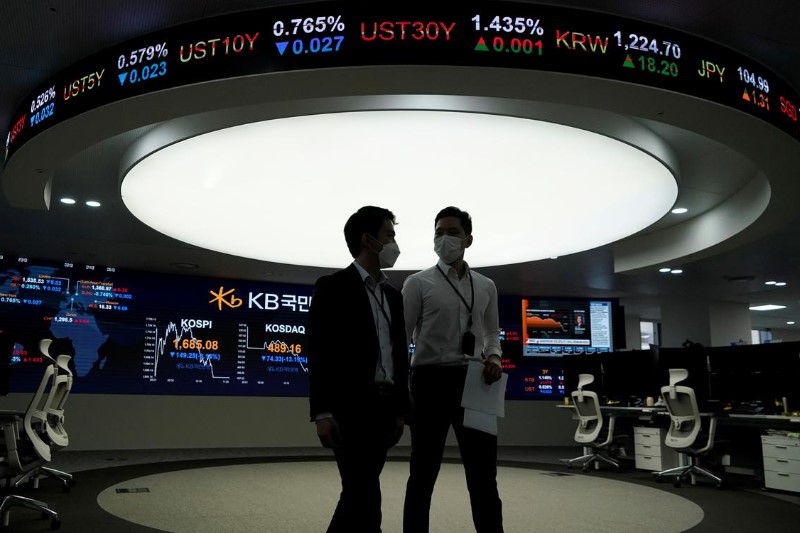Target CEO Departure and the Path Ahead

Introduction
Target CEO Brian Cornell announced his departure after 11 years at the helm of the retail giant. The decision comes amidst a decline in sales and backlash to the company's retreat on diversity, equity, and inclusion (DEI) efforts.
Challenges Faced
Cornell's tenure at Target has been marked by numerous challenges, including competition from online retailers and the COVID-19 pandemic. In addition, the company has faced criticism for scaling back its DEI initiatives, which were once seen as a key differentiator for the brand.
The Path Ahead
Target's search for a new CEO comes at a critical time, as the company looks to regain its footing and address consumer concerns around diversity and inclusion. The new leader will need to navigate a rapidly changing retail landscape and find ways to differentiate Target from its competitors. The company's success will also hinge on its ability to rebuild trust with customers and employees by prioritizing DEI efforts once again.
About the People Mentioned
Brian Cornell
Brian Cornell is a prominent retail executive who has served as Chair and Chief Executive Officer of Target Corporation since August 2014.[1][3] He is the first outsider to be appointed as Target's CEO, brought in to lead the company's turnaround following a major data breach and leadership transition.[2] Cornell holds a bachelor's degree from UCLA (1981) and attended the Anderson School of Management at UCLA and the Executive Program at Stanford University Graduate School of Business.[1] Prior to joining Target, he accumulated over 30 years of experience in escalating leadership positions across major retail and consumer product companies, holding three CEO roles during his career.[3][5] His professional background includes significant time in North America, Asia, Europe, and Latin America, providing him with global business perspectives.[3] During his tenure at Target, Cornell has been credited with transformative leadership that revitalized the company.[1] He implemented a strategic direction focused on digital integration, supply chain modernization, and private-label brand development.[3][4] A pivotal decision was placing Target's store network at the center of both physical shopping and digital fulfillment—a counterintuitive move that proved highly successful.[4] The 2017 acquisition of Shipt further strengthened Target's same-day, store-based fulfillment capabilities, driving the company's strongest growth in its 60-year history.[4] Under his leadership, Target grew by tens of billions of dollars.[3] Beyond his CEO role, Cornell has received numerous accolades. He was inducted into the World Retail Congress Hall of Fame in 2025 and received the National Retail Federation's "Visionary" award.[3] CNN named him Top CEO of the Year, and UCLA honored him with the John Wooden Global Leadership Award.[3] As of February 1, 2026, Cornell is transitioning to the role of Executive Chair of Target's Board of Directors.[3] He currently serves as non-executive chairman of Yum! Brands and chairs The Business Council.[3]
About the Organizations Mentioned
Target
Target Corporation is a leading American retail giant, renowned for its trendy, affordable merchandise and extensive big-box stores. Founded in 1962 by John Geisse and Douglas Dayton, Target evolved from the Dayton Dry Goods Company, which began in 1902. The company's early success was marked by its innovative approach to discount retailing, and it officially became Target Corporation in 2000. ### History and Evolution Target's journey began with its first store in Roseville, Minnesota. Over the years, it expanded across the U.S., adapting its business model to meet diverse consumer needs. Notable store formats include SuperTarget and CityTarget. Despite setbacks like a failed Canadian expansion and data breaches, Target has consistently innovated, enhancing its product offerings, especially in groceries. ### Key Achievements - **Business Model**: Target is known for offering high-quality, on-trend merchandise at discounted prices, both in-store and online. Its effective supply chain management allows it to keep prices low while maintaining profitability[1][3]. - **Community Engagement**: Target is recognized for its philanthropy, donating 5% of its profits to communities. It also supports various social causes, including LGBTQ rights[4][7]. - **Innovation**: Target has built a $30 billion owned-brands business by leveraging design practices to develop products[9]. ### Current Status As of 2025, Target operates over 2,000 stores across the U.S. and is the seventh-largest retailer in the country. It is a component of the S&P 500 Index and ranks No. 32 on the Fortune 500 list[3][4]. Target's digital presence is robust, with a strong online platform and fulfillment services that enhance customer convenience[2]. ### Notable Aspects - **Organizational Structure**: Target operates under a functional structure, emphasizing core functions like merchandising, marketing, and supply chain management. This structure supports operational efficiency and brand consistency[5]. - **

















